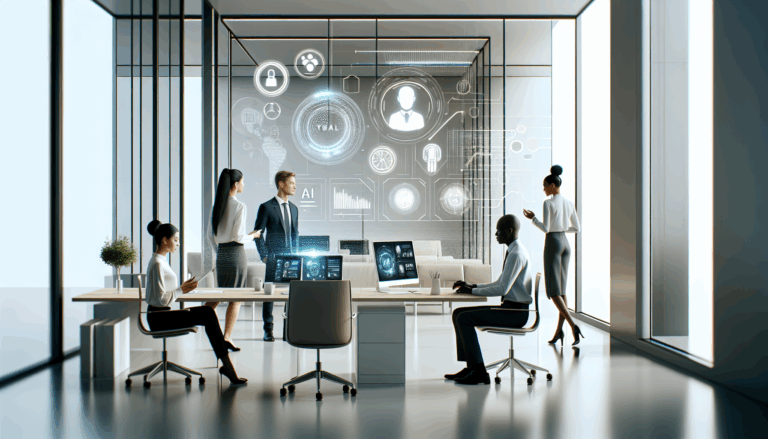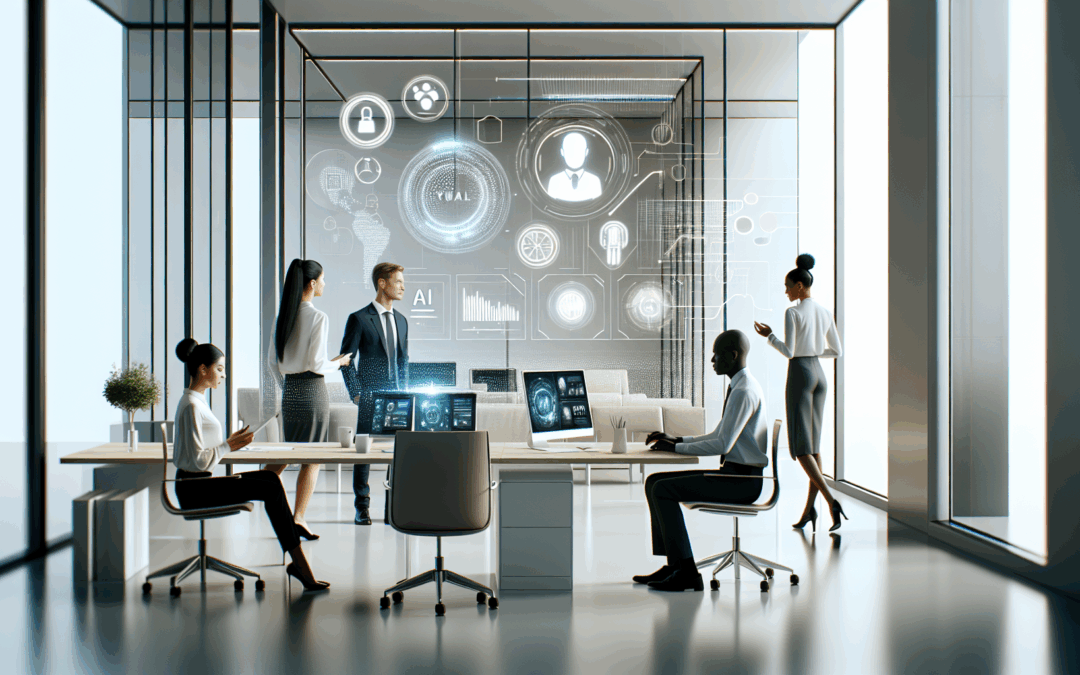The Rise of AI in the Modern Workplace
Artificial Intelligence (AI) is no longer a distant concept confined to science fiction or specialized tech sectors; it has become an integral part of everyday work environments. In today’s office settings, AI is reshaping the way employees collaborate, complete tasks, and enhance productivity. From automating mundane activities to providing insightful data analysis, AI is transforming the workplace into a more dynamic and efficient ecosystem.
How AI Elevates Workplace Productivity
The integration of AI in offices boosts productivity by streamlining workflows and minimizing repetitive tasks. Intelligent systems can manage scheduling, organize documents, and even handle customer inquiries, freeing up employees to focus on strategy and creativity. AI productivity tools utilize machine learning algorithms to offer personalized assistance, optimizing the way workers manage their time and priorities.
One significant advancement is the use of AI prompts—automated suggestions generated by AI platforms that guide users in composing emails, reports, or presentations faster and with greater accuracy. These prompts improve communication clarity and reduce the time spent on drafting content by generating initial drafts, summarizing long documents, or proposing relevant data points.
AI Training: Equipping Employees for the Future
As AI becomes more entrenched in workplace operations, the need for comprehensive AI training programs grows. Educating employees about AI technology, its applications, and ethical considerations empowers them to collaborate effectively with AI tools and leverage their full potential. Businesses offering AI training help workers understand not only how to use AI platforms but also how to develop AI prompts that align with project goals and enhance efficiency.
AI training also alleviates concerns about job displacement by emphasizing AI as an augmentative tool rather than a replacement. When employees learn how to harness AI to complement human skills, the overall work environment becomes more adaptive and innovative.
The Transformative Impact of AI in Office Environments
Office spaces equipped with AI technologies offer a smarter, more personalized work experience. From intelligent virtual assistants scheduling meetings to AI-driven analytics predicting market trends, these technologies enhance decision-making and operational agility. AI-powered chatbots provide round-the-clock support for internal queries, reducing delays and promoting smoother communication between departments.

Moreover, AI helps in managing office resources efficiently—smart lighting, temperature control, and occupancy sensing use AI to create comfortable workplaces while optimizing energy consumption. This not only improves employee well-being but also supports sustainability goals.
Real-World Applications of AI at Work
Several industries are demonstrating the practical benefits of AI at work:
– **Customer Service:** AI chatbots address common customer questions instantly, reducing response times and increasing satisfaction.
– **Human Resources:** AI algorithms screen resumes and assist in candidate selection, ensuring a fair and efficient recruitment process.
– **Finance:** AI tools analyze transaction patterns, detect fraud, and generate financial forecasts with high accuracy.
– **Marketing:** AI-driven insights help tailor campaigns based on consumer behavior, improving targeting and engagement.
These examples illustrate how AI’s adaptability makes it relevant across diverse office functions.
Challenges and Considerations in AI Adoption
While AI offers tremendous benefits, companies must navigate several challenges during its integration into the workplace. Data privacy and security remain paramount concerns in AI deployment. Organizations need robust policies to protect sensitive information and ensure compliance with regulations.
Another important factor is the potential bias in AI algorithms. Without careful programming and continuous monitoring, AI systems can perpetuate discriminatory practices inadvertently. Transparent AI training measures and ethical guidelines are essential to mitigate these risks.
Finally, the human aspect should never be overlooked. As AI systems evolve, maintaining a balance between automation and human intuition is critical for fostering innovation and employee satisfaction.
The Future of AI in the Workplace
Looking ahead, AI will continue to evolve as a key driver of workplace transformation. The growing interaction between human employees and intelligent systems promises a future where workplaces are more productive, innovative, and responsive. AI will not only take on repetitive tasks but also provide strategic insights that empower employees to make smarter decisions.
As Satya Nadella, CEO of Microsoft, aptly stated, “Ultimately, the goal of AI is not to replace humans but to amplify human ingenuity.” This vision anchors AI’s role as an enhancer of human potential rather than a competitor.
Adopting AI in the workplace requires thoughtful planning, ongoing training, and a forward-thinking mindset. Organizations that embrace these principles will unlock new levels of efficiency and creativity, defining the future of work in the AI era.
Get started today with Responsible use of AI license training.

